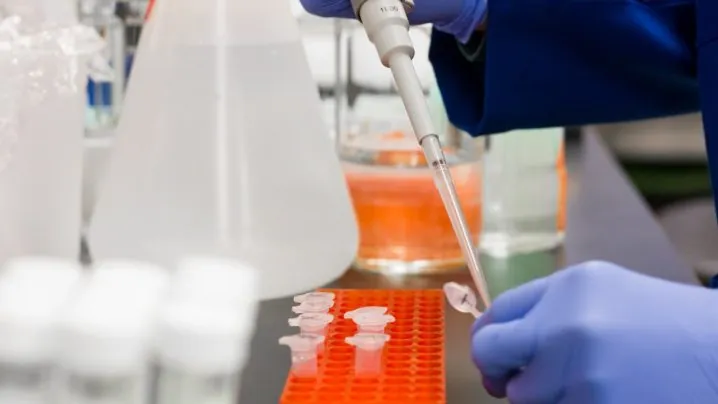Biochemistry tests are important diagnostic tools used to understand the chemical structure and functioning of our body. By measuring the levels of various substances in your blood, these tests provide valuable information about your health status. But what exactly are these tests and what are they trying to tell you? In this article, we take a detailed look at the most common biochemistry tests and what they mean.
-
Complete Blood Count (CBC)
A complete blood count is one of the most common biochemistry tests. This test measures the number and proportion of different cell types in your blood.
a) Red Blood Cells (RBC): These oxygen-carrying cells help to detect conditions such as anemia or polycythemia.
b) White Blood Cells (WBC): These cells, which are part of your immune system, increase in cases of infection or inflammation.
c) Platelets: These cells are involved in blood clotting and are used to assess the risk of bleeding disorders or thrombosis.
d) Hemoglobin and hematocrit: These values show the oxygen carrying capacity of the blood and are important in the diagnosis of anemia.
-
Lipid Profile
Lipid profile is a group of tests used to assess the risk of heart disease.
a) Total Cholesterol: High levels increase the risk of heart disease.
b) LDL Cholesterol: Known as the "bad" cholesterol. High levels increase the risk of atherosclerosis.
c) HDL Cholesterol: Called the "good" cholesterol. High levels are beneficial for heart health.
d) Triglycerides: High levels increase the risk of heart disease and pancreatitis.
-
Liver Function Tests
These tests assess the health and function of the liver.
a) ALT (Alanine Aminotransferase) and AST (Aspartate Aminotransferase): These enzymes indicate liver damage. High levels can signal conditions such as hepatitis, alcohol abuse or drug toxicity.
b) ALP (Alkaline Phosphatase): High levels may indicate conditions such as bile duct obstruction or bone diseases.
c) Bilirubin: High levels may indicate conditions such as jaundice or hemolytic anemia.
d) Albumin: Produced by the liver, this protein provides information about nutritional status and liver function.
-
Kidney Function Tests
These tests assess how well the kidneys are working.
a) Creatinine A by-product of muscle metabolism, creatinine is excreted by the kidneys. High levels indicate impaired kidney function.
b) BUN (Blood Urea Nitrogen): Urea, a waste product of protein metabolism, is excreted by the kidneys. High levels may indicate kidney problems or dehydration.
c) GFR (Glomerular Filtration Rate): This value shows how well the kidneys filter.
-
Electrolytes
Electrolytes regulate your body's fluid balance, nerve and muscle function.
a) Sodium: High or low levels may indicate dehydration, kidney problems or hormonal imbalances.
b) Potassium: Abnormal levels may indicate heart rhythm disorders, kidney problems or side effects of certain medications.
c) Calcium: Important for bone health, nerve and muscle function. Abnormal levels may indicate parathyroid gland problems or vitamin D deficiency.
d) Magnesium Important for muscle and nerve function. Low levels may indicate malabsorption or excessive alcohol use.
-
Glucose Tests
These tests, which measure blood glucose levels, are used in the diagnosis and follow-up of diabetes.
a) Fasting Blood Glucose: Measured after 8 hours of fasting. Values above 100 mg/dL indicate a risk of prediabetes or diabetes.
b) HbA1c: Shows the average blood glucose level in the last 2-3 months. It is used in diabetes diagnosis and follow-up.
c) Oral Glucose Tolerance Test: Blood glucose is measured at regular intervals after drinking glucose solution. It is used in the diagnosis of diabetes.
-
Thyroid Function Tests
These tests measure the activity of the thyroid gland and show hormone levels that affect your metabolic rate.
a) TSH (Thyroid Stimulating Hormone): High levels may indicate hypothyroidism and low levels hyperthyroidism.
b) T4 (Thyroxine) and T3 (Triiodothyronine): The levels of these hormones indicate how active the thyroid gland is.
-
Vitamin and Mineral Tests
These tests measure the levels of vitamins and minerals in your body.
a) Vitamin D: Important for bone health and the immune system. Low levels may increase the risk of osteoporosis.
b) Vitamin B12: Essential for the nervous system and blood cell production. Low levels can lead to anemia and neurological problems.
c) Iron: Required for red blood cell production. Low levels indicate iron deficiency anemia.
-
Markers of Inflammation
These tests measure the level of inflammation in the body.
a) C-Reactive Protein (CRP): High levels indicate the presence of inflammation or infection.
b) Sedimentation Rate (ESR): High values may indicate chronic inflammatory conditions.
-
Hormonal Tests
These tests measure the levels of various hormones and help to detect endocrine system disorders.
a) Cortisol: Known as the stress hormone. Abnormal levels of it may indicate conditions such as Cushing's syndrome or Addison's disease.
b) Testosterone and Estrogen: Levels of sex hormones are important for reproductive health and general metabolism.
c) Prolactin: High levels may indicate pituitary gland tumors or side effects of certain medications.
Considerations when Interpreting Biochemistry Tests:
- Reference Ranges: There are "normal" value ranges determined for each test. However, these ranges may differ between laboratories and may vary according to factors such as age and gender.
- Holistic Approach: A single test result is often not enough to make a definitive diagnosis. Your doctor will evaluate all test results together and combine them with clinical findings.
- Changes over Time: Some test results may change over time. This is why regular follow-up is important, rather than a single test.
- Lifestyle Factors: Factors such as diet, exercise, stress, medication can affect test results.
- False Positive and False Negative Results: No test is 100% accurate. Sometimes tests can give false positive or false negative results.
Conclusion
Biochemistry tests provide valuable information about how your body works. However, interpreting these tests is a complex process and should always be done by a health professional. Always maintain open communication with your doctor to understand the results of your tests and to best manage your health.
Regular health check-ups and biochemistry tests as needed can help you detect potential health problems early and take precautions. But remember that a healthy lifestyle - a balanced diet, regular exercise, adequate sleep and stress management - is always the best preventive medicine approach.
Biochemistry tests are a way to listen to what your body is telling you. Use these tests as a tool to improve and maintain your health, but don't make them the focus of your life. A healthy life is about much more than just good test results.

























